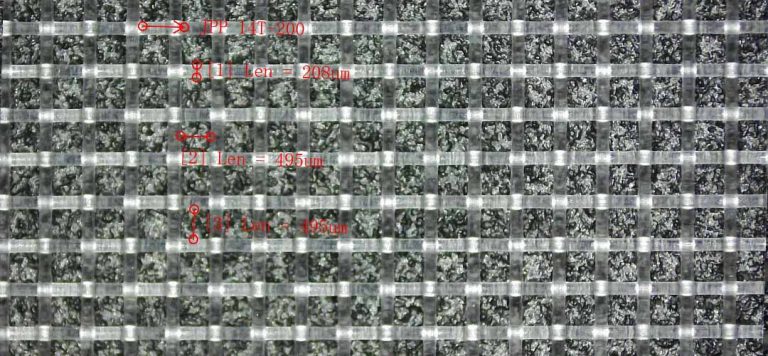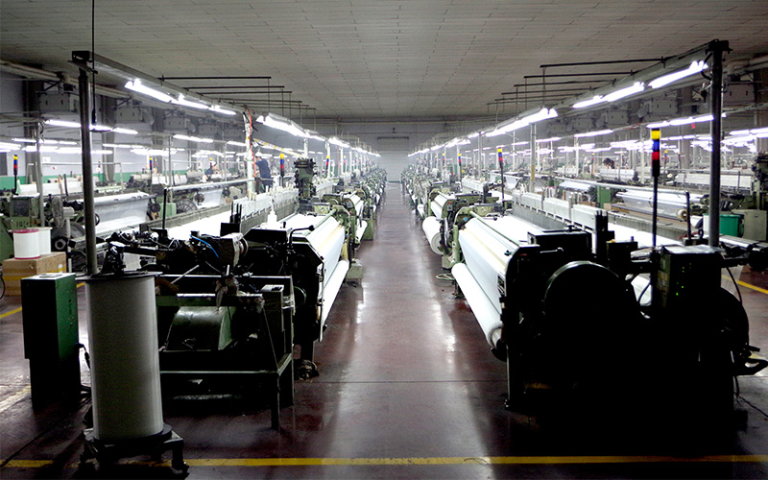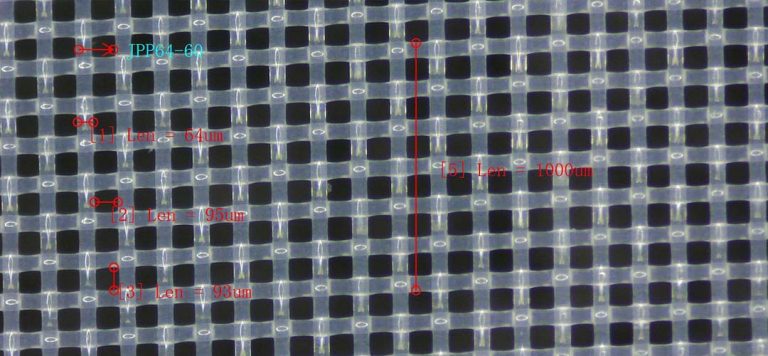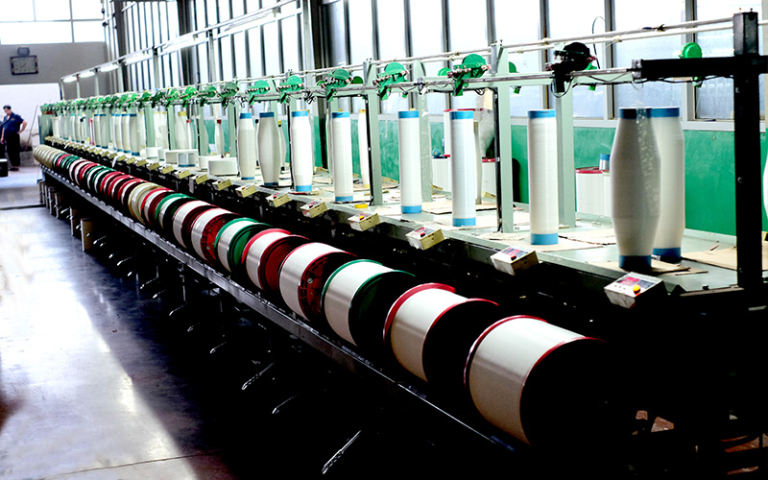Table of Contents
Proper Sizing and Mesh Count Selection
When it comes to selecting nylon mesh filter panels for maximum efficiency, proper sizing and mesh count selection are crucial factors to consider. Nylon mesh filter panels are commonly used in various industries such as food and beverage, pharmaceutical, and chemical processing to remove impurities and particles from liquids and gases. Choosing the right size and mesh count will ensure that the filter panels effectively capture contaminants while maintaining optimal flow rates.
One of the first steps in selecting nylon mesh filter panels is determining the appropriate size for your specific application. The size of the filter panel should be based on the dimensions of the filtration system or equipment it will be used in. It is important to measure the length, width, and thickness of the filter housing to ensure that the filter panel fits properly and seals tightly to prevent bypass of contaminants.
In addition to size, the mesh count of the filter panel is another important consideration. Mesh count refers to the number of openings per linear inch in the mesh material. A higher mesh count indicates a finer mesh with smaller openings, while a lower mesh count indicates a coarser mesh with larger openings. The mesh count of the filter panel should be selected based on the size of the particles or contaminants that need to be captured.
For applications where fine particles need to be removed, a filter panel with a higher mesh count is recommended. This will ensure that even the smallest particles are captured, resulting in cleaner filtrate. On the other hand, for applications where larger particles need to be removed, a filter panel with a lower mesh count may be more suitable. It is important to strike a balance between capturing contaminants and maintaining adequate flow rates to prevent clogging and pressure drop.
When selecting the mesh count of the filter panel, it is also important to consider the material being filtered. Different materials may require different mesh counts to achieve optimal filtration efficiency. For example, filtering liquids with fine particles may require a higher mesh count, while filtering gases or coarse particles may require a lower mesh count.
In addition to size and mesh count, the material of the filter panel is another important factor to consider. Nylon mesh filter panels are known for their durability, chemical resistance, and high flow rates. They are suitable for a wide range of applications and can withstand harsh operating conditions. When selecting nylon mesh filter panels, it is important to choose a material that is compatible with the fluid or gas being filtered and can withstand the temperature and pressure conditions of the application.
In conclusion, proper sizing and mesh count selection are essential for maximizing the efficiency of nylon mesh filter panels. By choosing the right size, mesh count, and material, you can ensure that the filter panels effectively capture contaminants while maintaining optimal flow rates. Consider the specific requirements of your application and consult with a filtration expert to select the best nylon mesh filter panels for your needs.
Material and Construction Quality
When it comes to selecting nylon mesh filter panels for maximum efficiency, material and construction quality are two key factors to consider. Nylon mesh filter panels are commonly used in a variety of industries, including food and beverage, pharmaceutical, and chemical processing. These filter panels are designed to remove impurities and contaminants from liquids and gases, ensuring a clean and safe end product.
One of the most important aspects to consider when selecting nylon mesh filter panels is the material quality. Nylon is a durable and versatile material that is known for its strength and resistance to abrasion. When choosing nylon mesh filter panels, it is important to select panels that are made from high-quality nylon material. This will ensure that the filter panels are able to withstand the rigors of the filtration process and provide long-lasting performance.
In addition to material quality, the construction quality of nylon mesh filter panels is also crucial. The construction of the filter panels determines their overall effectiveness and efficiency in removing impurities from liquids and gases. When selecting nylon mesh filter panels, it is important to look for panels that are well-constructed with tight seams and secure edges. This will help prevent bypass of contaminants and ensure that the filtration process is thorough and effective.
Another important factor to consider when selecting nylon mesh filter panels is the mesh size. The mesh size of the filter panels determines the level of filtration and the size of particles that can be removed from the liquid or gas. It is important to choose nylon mesh filter panels with the appropriate mesh size for the specific application. For example, a finer mesh size may be required for applications where smaller particles need to be removed, while a coarser mesh size may be sufficient for larger particles.
When selecting nylon mesh filter panels, it is also important to consider the flow rate. The flow rate of the filter panels determines how quickly the liquid or gas can pass through the filter. It is important to choose nylon mesh filter panels with a flow rate that is suitable for the specific application. Panels with a higher flow rate may be necessary for applications where a large volume of liquid or gas needs to be filtered quickly, while panels with a lower flow rate may be sufficient for smaller volumes.

In conclusion, selecting nylon mesh filter panels for maximum efficiency requires careful consideration of material and construction quality, mesh size, and flow rate. By choosing high-quality nylon mesh filter panels that are well-constructed and designed for the specific application, you can ensure that your filtration process is effective and efficient. With the right nylon mesh filter panels, you can achieve clean and safe end products in a variety of industries.
Compatibility with Filtration System and Application Requirements
When it comes to selecting nylon mesh filter panels for maximum efficiency, compatibility with your filtration system and application requirements is crucial. Nylon mesh filter panels are commonly used in a variety of industries, including food and beverage, pharmaceutical, and chemical processing. These filter panels are designed to remove impurities and contaminants from liquids and gases, ensuring a clean and safe end product.
One of the first things to consider when selecting nylon mesh filter panels is the compatibility with your filtration system. It is important to ensure that the filter panels are the correct size and shape to fit into your existing filtration system. This will help to prevent any leaks or bypassing of contaminants, which can compromise the effectiveness of the filtration process.
Additionally, you should consider the micron rating of the nylon mesh filter panels. The micron rating refers to the size of the openings in the mesh, which determines the size of particles that can be captured by the filter. It is important to select a micron rating that is appropriate for your specific application requirements. For example, if you are filtering out large particles, you will need a filter panel with a larger micron rating. Conversely, if you are filtering out smaller particles, you will need a filter panel with a smaller micron rating.

Another important factor to consider is the material of the nylon mesh filter panels. Nylon mesh is known for its durability and resistance to chemicals, making it an ideal choice for many filtration applications. However, it is important to ensure that the material is compatible with the liquids or gases being filtered. Some chemicals or solvents may degrade the nylon mesh over time, reducing its effectiveness. In these cases, it may be necessary to select a different material, such as stainless steel or polyester.
In addition to compatibility with your filtration system, it is important to consider your application requirements when selecting nylon mesh filter panels. This includes factors such as flow rate, pressure drop, and temperature resistance. The flow rate refers to the volume of liquid or gas that can pass through the filter panel in a given amount of time. It is important to select a filter panel that can handle the flow rate required for your application without causing excessive pressure drop.
Pressure drop refers to the decrease in pressure that occurs as the liquid or gas passes through the filter panel. A high pressure drop can reduce the efficiency of the filtration process and increase energy costs. It is important to select a filter panel that minimizes pressure drop while still effectively capturing contaminants.
Temperature resistance is another important consideration when selecting nylon mesh filter panels. Some applications may require the filter panels to withstand high temperatures without degrading or melting. It is important to select a filter panel that can handle the temperature requirements of your application to ensure maximum efficiency and longevity.
In conclusion, selecting nylon mesh filter panels for maximum efficiency requires careful consideration of compatibility with your filtration system and application requirements. By choosing the right size, shape, micron rating, material, flow rate, pressure drop, and temperature resistance, you can ensure that your filtration process is effective and reliable. Investing in high-quality nylon mesh filter panels will help to protect your equipment, improve product quality, and ensure a safe and clean end product.






